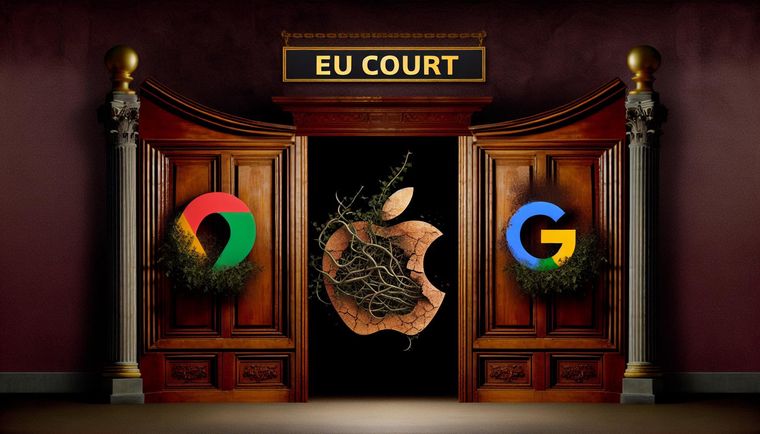Google Faces Final Blow from EU Court as Apple Loses Tax Appeal

In a landmark ruling, the Court of Justice of the European Union (CJEU) has dealt a significant blow to Google, confirming a hefty €24 billion fine imposed by the European Commission for abusing its dominant market position. The court determined that Google unlawfully favored its own comparison shopping service over those of its competitors, drawing a clear line on anti-competitive practices in the tech industry.
The case dates back to 2017 when the European Commission first accused Google of exploiting its superior market access to promote its own services. According to the Commission, Google presented its shopping service at the top of search results, adorned with images and descriptive text, while competitors were relegated to lower rankings, appearing merely as plain blue links. This tactic not only skewed consumer choices in favor of Google but also undermined the economic viability of competing services which relied heavily on traffic directed from Google’s search page.
In an age where online visibility can dictate the success of a business, the Commission's stance was that Google's actions constituted a blatant abuse of its market dominance. Google and its parent company Alphabet attempted to contest the ruling in European courts but found no relief, culminating in their unsuccessful appeals to the CJEU.
In a separate but equally significant ruling, the CJEU also upheld the European Commission’s stance against Apple concerning €13 billion in back taxes. Originally, the Commission had mandated Apple to pay this sum due to tax agreements it made with Ireland, which were determined to be illegal state aid. Apple had previously won a court case in 2020 that dismissed these claims, but the Commission’s appeal led to this latest ruling which reinstated their demand.
Apple has maintained that their earnings from the two disputed Irish subsidiaries were subject to U.S. taxation, arguing that the demand from the EU for additional taxes amounted to double taxation. This situation underscores the ongoing tensions between multinational corporations and European taxation laws, with the EU aiming to prevent disparities that could distort free competition.
The CJEU's decisions are a win for the European Commission, which has long been vigilant in its efforts to curb the market power of large tech companies. For years, the EU has sought to establish frameworks that foster healthy competition, responding to growing public and regulatory concern over the unchecked power of digital giants. The rulings send a strong message that deviations from fair competition standards will have serious financial repercussions.
In response to these ongoing challenges, the EU has implemented laws like the Digital Markets Act, designed to specifically target the dominance of major online platforms. The Commission has levied several fines on Google in recent years, amassing over €8 billion in total, although Google's substantial revenue from online advertising has thus far allowed it to absorb these penalties with relative ease.
The European landscape continues to evolve as regulators grapple with the complexities introduced by digital markets and big tech's influence. With the CJEU reaffirming the importance of competitive integrity and its willingness to take a stand against malpractices, the future appears increasingly uncertain for companies that fail to align with EU competition laws.
As the dust settles on these pivotal rulings, the tension between the might of tech giants and regulatory authorities persists, heralding new discussions on how to create a fair and equitable market for all players involved.
Related Sources:
• Source 1 • Source 2 • Source 3 • Source 4 • Source 5 • Source 6 • Source 7 • Source 8
